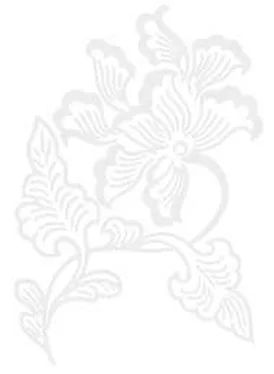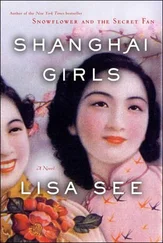Lisa See - Peony in Love
Здесь есть возможность читать онлайн «Lisa See - Peony in Love» весь текст электронной книги совершенно бесплатно (целиком полную версию без сокращений). В некоторых случаях можно слушать аудио, скачать через торрент в формате fb2 и присутствует краткое содержание. Жанр: Старинная литература, на английском языке. Описание произведения, (предисловие) а так же отзывы посетителей доступны на портале библиотеки ЛибКат.
- Название:Peony in Love
- Автор:
- Жанр:
- Год:неизвестен
- ISBN:нет данных
- Рейтинг книги:4 / 5. Голосов: 1
-
Избранное:Добавить в избранное
- Отзывы:
-
Ваша оценка:
- 80
- 1
- 2
- 3
- 4
- 5
Peony in Love: краткое содержание, описание и аннотация
Предлагаем к чтению аннотацию, описание, краткое содержание или предисловие (зависит от того, что написал сам автор книги «Peony in Love»). Если вы не нашли необходимую информацию о книге — напишите в комментариях, мы постараемся отыскать её.
Peony in Love — читать онлайн бесплатно полную книгу (весь текст) целиком
Ниже представлен текст книги, разбитый по страницам. Система сохранения места последней прочитанной страницы, позволяет с удобством читать онлайн бесплатно книгу «Peony in Love», без необходимости каждый раз заново искать на чём Вы остановились. Поставьте закладку, и сможете в любой момент перейти на страницу, на которой закончили чтение.
Интервал:
Закладка:
to rinse her mouth, to dress her hair, to pin the same, and to pay respects to her mother and father.”
I heard things like this every day, along with Don’t show your teeth when you smile, Walk steadily and slowly, Look pure and pretty, Be respectful to your aunties, and Use scissors to trim any frayed or loose threads on your gowns.
Poor Spring Fragrance couldn’t stand the lessons and begged to be dismissed so she could pee. The men on the other side of the screen chortled when Willow bent over at the waist, squirmed, and held in her pee with both hands. It embarrassed me to see her behaving so, but she was only doing what my father had instructed (which shocked me, because how could he know about such things?).
In my discomfort, I let my eyes drift from the stage, and I saw men.
Most of them had their backs to me, but some were angled so I could see their profiles. I was a maiden, but I looked. It was naughty, but I had lived fifteen years without having committed a single act that anyone in my family could call unfilial.
My eyes caught sight of a man as he turned his head to look at the gentleman sitting in the chair next to him. His cheekbones were high, his eyes wide and kind, and his hair black as a cave. He wore a long dark-blue gown of simple design. His forehead was shaved in deference to the Manchu emperor, and his long queue draped languidly over a shoulder.
He brought his hand up to his mouth to make an aside, and I imagined in that simple gesture so much: gentleness, refinement, and a love of poetry.
He smiled, revealing perfect white teeth and eyes that shone with merriment. His elegance and somnolence reminded me of a cat: long, slim, perfectly groomed, knowledgeable, and very contained. He was man-beautiful. When he turned his face back to the stage to watch the opera, I realized I’d been holding my breath. I let it out slowly and tried to concentrate as Spring Fragrance returned—relieved—with news of a garden she’d found.
When I read this part of the story, I felt great sympathy for Liniang, who was so cloistered she didn’t even know her family owned a garden.
She had spent her entire life indoors. Now Spring Fragrance tempted her mistress to go outside to see the flowers, willows, and pavilions. Liniang was curious, but she artfully hid her interest from her maid.
The quiet and subtlety was broken by a great fanfare announcing the Speed the Plough scene. Prefect Du arrived in the countryside to exhort ( 1 1 )
the farmers, herders, mulberry girls, and tea pickers to work hard in the coming season. Acrobats tumbled, clowns drank from flasks of wine, men in gaily decorated costumes tottered about the garden on stilts, and our maids and other servants performed country harvest songs and dances. It was such a li scene, filled with what I imagined the outside world of men to be: wild gestures, exaggerated facial expressions, and the dissonance of gongs, clackers, and drums. I closed my eyes against the cacophony and tried to draw more deeply into myself to find my interior reading quiet.
My heart calmed. When I opened my eyes, I again saw through the slit in the screen the man I’d spotted earlier. His eyes were closed. Could he be feeling what I was feeling?
Someone pulled my sleeve. I glanced to my right and saw Tan Ze’s pinched little face looking up at me intently. “Are you staring at that boy out there?” she whispered.
I blinked a few times and tried to regain my composure by taking several shallow breaths.
“I was looking at him too,” she confided, acting much too bold for her years. “You must be betrothed already. But my father”—she brought her chin down while looking up at me with clever eyes—“has not yet arranged my marriage. He says that with so much turmoil still in the land, no one should agree to these things too early. You don’t know which family will go up and which will go down. My father says it’s terrible to marry a daughter to a mediocre man.”
Was there a way to make this girl close her mouth? I wondered, and not in a nice way.
Ze turned back to face the screen and squinted through the crack. “I will ask my father to make inquiries about that boy’s family.”
As though she would actually have a choice in her marriage! I don’t know how it could have happened so quickly, but I was jealous and angry that she would try to steal him for herself. Of course, there was no hope for the young man and me. As Ze said, I was already betrothed. But for these three nights of the opera I wanted to dream romantic thoughts and imagine that my life too might have a happy love-filled ending like Liniang’s.
I blocked Ze from my mind and let myself be transported back to the opera for The Interrupted Dream. At last Liniang ventured out into her—
our—garden. Such a lovely moment when she sees it all for the first time.
Liniang lamented that the beauty of the flowers was hidden in a place no one visited, but she also saw the garden as a version of herself: in full ( 1 2 )
bloom but neglected. I understood how she felt. The emotions that stirred in her were stirred in me every time I read the lines.
Liniang returned to her room, changed into a robe embroidered with peony blossoms, and sat before a mirror, wondering at the fleeting nature of her beauty much as I had this morning. “Pity one whose beauty is a bright flower, when life endures no longer than a leaf on a tree,” she sang, expressing how disturbing spring’s splendor can be, and how temporary. “I finally understand what the poets have written. In spring, moved to passion; in autumn, only regret. Oh, will I ever see a man? How will love find me? Where can I reveal my true desires?”
Overcome by all she’d experienced, she fell asleep. In her dreams, she traveled to the Peony Pavilion, where the spirit of Liu Mengmei appeared, wearing a robe with a willow pattern and carrying a willow sprig. He touched Liniang gently with the leaves. They exchanged soft words, and he asked her to compose a poem about the willow. Then they danced together. Liniang was so delicate and touching in her movements that it was like watching a silkworm’s death—tender and subtle.
Mengmei led her into our garden’s rocky grotto. With the two of them gone from view, all I heard was Mengmei’s seductive voice. “Open the fastening at your neck, untie the sash around your waist, and cover your eyes with your sleeve. You may need to bite the fabric. . . .”
Alone in my bed I had tried in vain to imagine what might be going on in the rockery of the Peony Pavilion. I still couldn’t see what was happening and had to rely on the appearance of the Flower Spirit to explain their actions. “Ah, how the male force surges and leaps. . . .” But this didn’t help me either. As an unmarried girl, I’d been told about clouds and rain, but no one had yet explained what it really was.
At consummation, a shower of peony petals came floating over the top of the rockery. Liniang sang of the joys she and her scholar had found.
When Liniang woke from her dream, she realized she’d found true love. Spring Fragrance, on orders from Madame Du, instructed Liniang to eat. But how could she? Three meals a day held no promise, no love. Liniang sneaked away from her servant and went back to the garden to pursue her dream. She saw the ground carpeted in petals. Hawthorn branches caught her skirt, pulling at her, keeping her in the garden. Memories of her dream came back to her: “Against the withered rock he leaned my wilting body.” She remembered how he laid her down and how she spread the folds of her skirt as “a covering for earth for the fear of the eyes of Heaven,” until eventually she’d experienced her sweet melting.
Читать дальшеИнтервал:
Закладка:
Похожие книги на «Peony in Love»
Представляем Вашему вниманию похожие книги на «Peony in Love» списком для выбора. Мы отобрали схожую по названию и смыслу литературу в надежде предоставить читателям больше вариантов отыскать новые, интересные, ещё непрочитанные произведения.
Обсуждение, отзывы о книге «Peony in Love» и просто собственные мнения читателей. Оставьте ваши комментарии, напишите, что Вы думаете о произведении, его смысле или главных героях. Укажите что конкретно понравилось, а что нет, и почему Вы так считаете.












